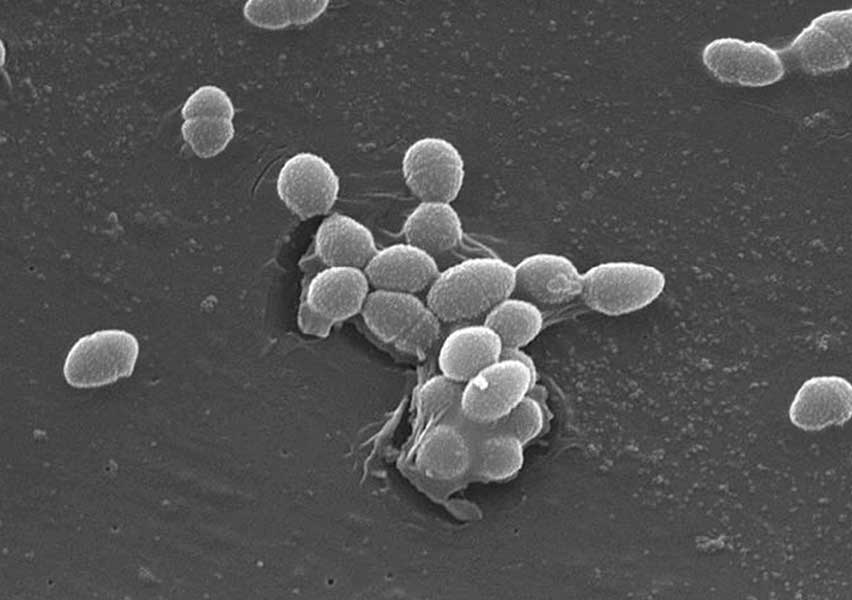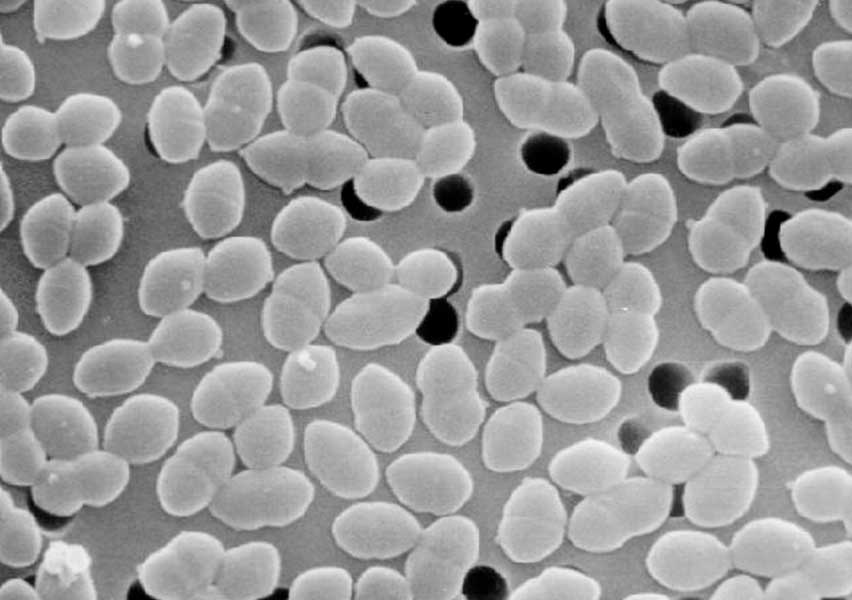Enterococcus
Enterococcus is a genus of Gram-positive commensal bacteria that normally inhabit the gastrointestinal tract of humans and other mammals. While part of the normal microbiota, some species can cause opportunistic infections, especially in hospital environments. The two most clinically relevant species are Enterococcus faecalis and Enterococcus faecium, both associated with multidrug-resistant infections.
Clinical features: The most common infections caused by Enterococcus include urinary tract infections, endocarditis, bacteremia, and wound infections. Nervous system infections are less common but possible. Hospitalized, immunocompromised patients or those with implanted medical devices are at higher risk.
These bacteria exhibit resistance to multiple antibiotics such as aminoglycosides, aztreonam, cephalosporins, clindamycin, and semisynthetic penicillins (nafcillin, oxacillin, dicloxacillin). Some strains also show resistance to trimethoprim-sulfamethoxazole. Exposure to cephalosporins promotes colonization and infection by Enterococcus. Additionally, glycopeptide-resistant strains exist, including vancomycin-resistant enterococci (VRE).
Habitat and transmission: Enterococcus is ubiquitous in the gastrointestinal tract of humans and warm-blooded animals and can also be found in animal- and plant-derived foods. Transmission occurs via direct or indirect contact through contaminated food, objects, or healthcare workers’ hands. In hospital settings, Enterococcus can contaminate medical equipment such as endoscopes and survive inadequate cleaning procedures.
Diagnosis: Diagnosis relies on microbiological isolation from clinical samples (urine, blood, tissues, or wound material). Accurate identification and susceptibility testing are essential due to the variable resistance patterns.
Treatment: Treatment can be challenging due to high intrinsic and acquired resistance. Antibiotic combinations are used, and in difficult cases, reserve drugs such as linezolid or tigecycline are employed. The ability of Enterococcus to transfer resistance genes to other bacteria further complicates infection management.


